Nigeria’s super-prolific movie industry is very popular, especially in East Africa where it’s more watched than any other piece of content from around the world. Even with the criticisms of Nollywood’s taste for bling Lagosians, so to speak, the industry has come a long way. Such a long way that if you showed it to the average O C Ukeje stan, “Palaver“, the first-ever Nigerian movie would seem to them like a needlessly long skit shot in Nigeria’s Middle Belt.
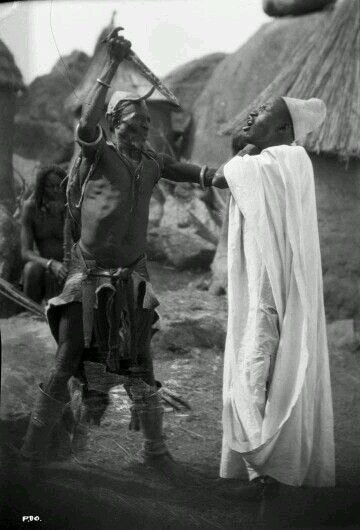
“Palaver” is anything but that. The movie was released in 1926 in an era less known for the dearth of British cinemas than for the gradual enforcement of British imperialism. Above all things, at a time when the British were systemically converting Nigeria to commercial use, “Palaver” was a proudly racist movie.
These are five things you should know about Nigeria’s first-ever movie.
- IT’S RECOGNISED AS THE FIRST NIGERIAN MOVIE EVER MADE
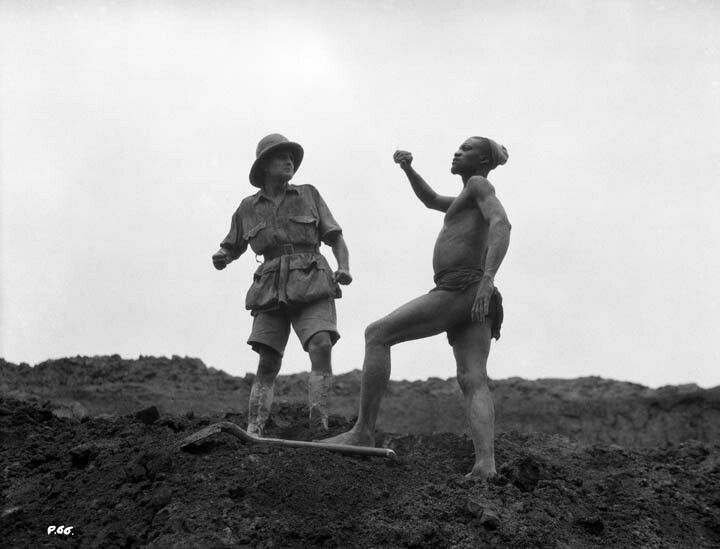
Or more accurately, it’s the first-ever feature film to be made entirely in Nigeria. “Palaver” was written and shot entirely by the British filmmaker, George Barkas in 1926 “among the Sura and Angas tribes on the Bauchi Plateau” according to the movie’s opening credits. Years later, Nigeria would become a preferred destination for films like 1935’s “Sanders of the River” by Zoltán Korda, which featured Nigerian actor Orlando Martins. Nigeria’s film industry would find its feet in the 1950s and strengthen in the 1960s and 1970s.
- IT WAS PART OF A BIGGER PICTURE
Speaking of opening credits, “Palaver” was not some workplace exercise; there was a big picture. In the 1920s, Britain was losing influence as a global economic and political power. They decided to find ‘soft power’, by taking advantage of the one thing they had going for them – their colonies. According to a 1927 edition of the Royal Society of Arts Journal, Britain’s Prime Minister at the time, Stanley Baldwin had called for action two years earlier, in 1925. He drew attention to the “danger to which we in this country and our Empire subject ourselves if we allow that method of propaganda [film] to be entirely in the hands of foreign countries“.
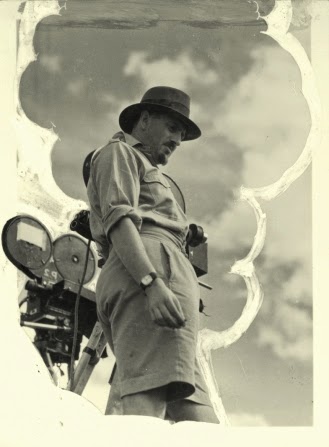
Not long after, a film studio, New Era Films was founded. E. Gordon Craig, the managing director described it as ‘an epoch in the resuscitation of British production’. In an August 1926 edition of the science and culture publication, Bioscope, Craig announced that three movies – “Nelson“, “Palaver“, and “Mons” would be shown on consecutive days in September that year. The “three British pictures in one week,” he said, “will convey the best of British ideals and sentiments’.
NIGERIANS WERE PORTRAYED AS CANNIBALS
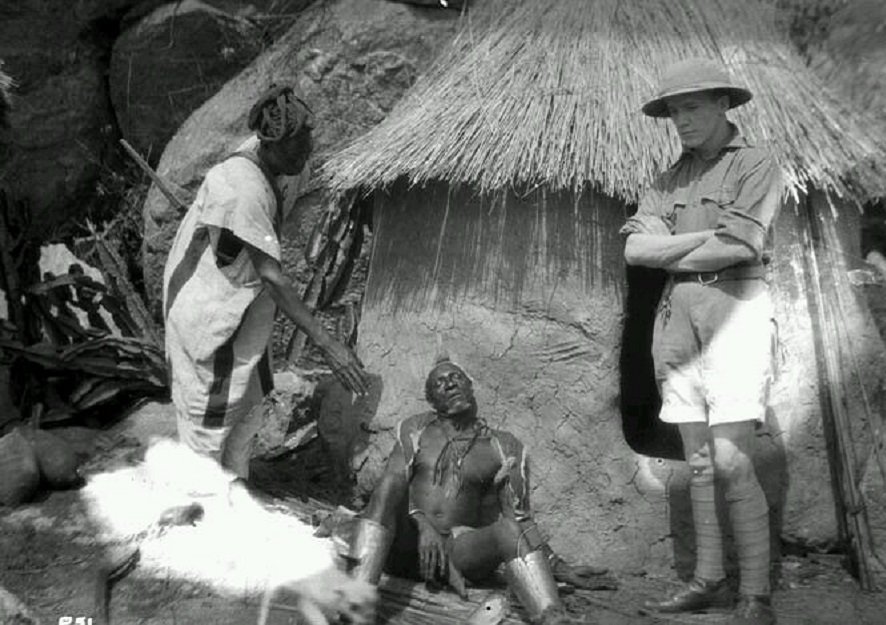
The makers of “Palaver” framed their narrative from the very first few seconds. After the location of the movie is introduced, the on-screen text says “Less than ten years ago, these tribes were cannibals“. The entire plot goes on to push this unfortunate perception of Africans, particularly by depicting a local king who trusts only in his witch doctor, as he is described. Both characters are caricatures at best, but that’s not where it ends. George Barkas actually described his work making the movie as ‘running the show, selecting my native cast from cannibal pagan tribes, and finally producing the film’.
- THE MOVIE REINFORCED POPULAR STEREOTYPES
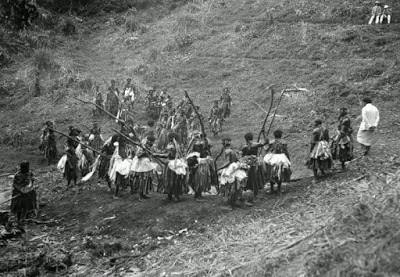
If there’s one thing that “Palaver” did well, it was to capture all the common stereotypes that the average European in the 1930s would have. The plot is as simplistic as they come; a jealous British tin miner and conman arouses the alcoholic king of the local tribe to go to war with the more refined local district officer, Allison. The prize; wait for it… a white nurse, your typical damsel-in-distress. It depicts Nigerians of the era as anarchic, fetish and reckless. A particular sharp jab is thrown when the local chief has to drink copious amounts of alcohol and gather liquid courage to summon his troops. It’s an allusion that’s still made of our indigenous leaders till this day. It’s worth adding that most Nigerians among the cast were locals, not professional actors.
- IT WAS FRAMED AS A FAVOUR TO AFRICANS
Do you know what
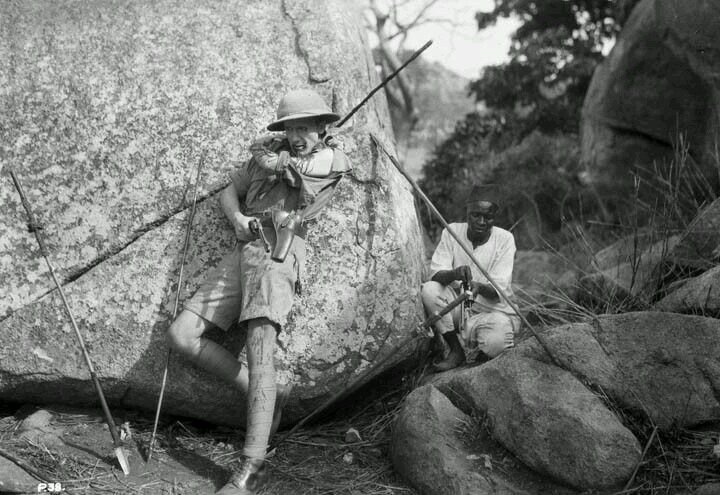
The Palaver Pressbook, the movie’s supplement, described this perfectly – ”Here, as elsewhere“, the document stated, “men of our race have plunged into the Unknown, and set themselves to transform chaos into order and security. Battling against slavery, human sacrifice and cannibalism, against torture and devil worship, against famine and disease, they have worked steadily on, winning the land for the natives under the Imperial Crown”.
It doesn’t really end there. Nigeria wouldn’t have its own cinemas until the 1950s. Palaver was thus shown mostly in British cinemas. As it was essentially a government project, the premiere was promoted as a look into the life of colonial officers in Africa.
Look how far we’ve come. If anything, it’s proof that Nigerian storytellers have a duty to portray our culture and history in all its glory and many layers.
Did you enjoy this? You should sign up for our weekly pop culture newsletter, Poppin’. You’ll get to know what we’re up to before anyone else + insider gist, reviews, freebies and more. If it sounds like your deal, sign up here.




